Ovarian Cysts Specialist
Ovarian cysts are a common women’s health issue that affects around 8% of women of reproductive age — typically between the ages of 15-44.
The number of affected women may be even higher as the condition often goes undiagnosed.

PAULINA T.
The team of gynecologists at Maiden Lane Medical offers expert diagnosis and customized treatment plans to restore your health and protect your fertility.
Call the practice in Manhattan, NY today or schedule a consultation online if you have ovarian cyst symptoms or are experiencing pelvic pain and need expert medical care.
About the ovaries
The ovaries are two small organs located on either side of your uterus.
Their primary function is to produce and release an egg every 28 days (or so) and the female sex hormones — estrogen and progesterone.
What are ovarian cysts?
A cyst is a fluid-filled sac. They can form anywhere in the body, including on the ovaries and Fallopian tubes.
Most ovarian cysts are not a problem. However, some ovarian cysts can grow, becoming large and painful.

Cysts are common and usually non-cancerous (benign).
Menopausal women are more likely to develop cancerous cysts or ovarian cancer. Most cysts resolve without causing pelvic pain or other symptoms.
However, if a cyst develops into a large growth, it could twist or rupture and cause severe pelvic pain and bleeding.

Ovarian Cysts
Types of ovarian cysts
Your body can produce several types of cysts. The two most common types are follicle cysts and corpus luteum cysts.
Follicle cysts
As your ovary prepares to release an egg, follicle or functional cysts form.
Follicles are small sacs, sometimes called functional ovarian cysts, that protect the egg until it is fully mature and ready to be released.
Your ovaries typically absorb the follicle after the egg is released.
However, if the follicle fails to release the egg, it may continue to grow and turn into a cyst.
Corpus luteum cyst
Corpus luteum cysts form when the follicle releases the egg but isn’t reabsorbed into the ovary. Instead, the follicle seals and fills with fluid, turning into a cyst.
Generally, these cysts go away on their own within a few weeks.
However, they can occasionally grow to more than four inches and bleed or twist, causing severe pain.
Polycystic ovary syndrome occurs when several tiny cysts form on the ovaries. This condition can interfere with ovarian function and fertility.
Other less common types of ovarian cysts include endometrioma, dermoid, and cystadenoma.
Have more questions?
Ovarian cyst causes
Abnormal hormones are the most common cause of ovarian cyst development.
Other potential causes include endometriosis, pregnancy, and pelvic infections.
Ovarian cyst symptoms
Ovarian cysts cause a wide range of symptoms, including:
- Pelvic pain
- Painful intercourse
- Abnormal menstrual cycle — irregular, heavy, or light
- Abnormal bleeding between periods
- Severe abdominal pain
- Difficulty emptying your bowels
- Frequent need to urinate
- Swollen or bloated abdomen
- Pain in the lower back or thighs
- Breast tenderness
- Nausea, fever, and vomiting
When should I talk to a doctor about my symptoms?
Ovarian cyst symptoms such as abnormal menstrual cycles and pelvic pain are undefined.

This means that many different health issues, including endometriosis, ectopic pregnancy, or uterine fibroids, can cause them.
You should schedule a consultation with your Maiden Lane Medical gynecologist to identify the cause of your pain and other symptoms.
How are ovarian cysts diagnosed?
After reviewing your symptoms and medical history, your doctor will perform a pelvic exam and order blood tests.
Depending on the results, your doctor may order additional testing, including an ultrasound scan, hysteroscopy, or an MRI to learn more about the fluid-filled sacs on your ovaries.
Ovarian cyst treatment options
Your doctor will recommend personalized treatments to relieve your symptoms and address your ovarian cyst.
Depending on your specific needs, they may prescribe pain relievers or hormonal treatments like birth control. Your doctor might also recommend waiting and watching to see if the ovarian cyst resolves on its own.
In severe cases, your doctor may recommend surgery to remove the cyst.
The team at Maiden Lane Medical offers minimally-invasive laparoscopic procedures to remove large cysts. With their advanced techniques, they can excise just the cyst and preserve your ability to have children.
Many women develop ovarian cysts. Call Maiden Lane Medical in Manhattan, NY, or schedule an appointment online for expert diagnosis and personalized treatment if you have any signs of an ovarian cyst or another reproductive health issue.
Women's Health Specialists
Related Services
- Abnormal Pap
- Abnormal Periods
- Abnormal Uterine Bleeding
- Annual Gyn Exam
- Colposcopy
- Dense Breasts
- Dysmenorrhea
- Endometrial Polyps
- Fibroids
- Gynecology
- Hpv
- Mammogram FAQs
- Menopause Management
- Obgyn
- Ovarian Cysts
- Painful Sex
- Pelvic Pain
- Polycystic Ovary Syndrome
- Preparing for a Mammogram
- Uterine Prolapse
- Vaginal Infections
Don't know which doctor to choose? Let us help you.

STEPHANIE L.
Our doctors who provide this service
Emily Blanton, MD
Focused Practice Designation in Minimally Invasive Gynecologic Surgery
Janette Davison, MD
Focused Practice Designation in Minimally Invasive Gynecologic Surgery
Kenneth A. Levey, MD MPH FACOG FACS
Focused Practice Designation in Minimally Invasive Gynecologic Surgery
Schedule an appointment with Maiden Lane Medical today!
Are you ready to take control of your health? Look no further than Maiden Lane Medical!
Our esteemed medical practice offers specialized services in pap smears and other related health concerns.
Call us today to make an appointment online for expert diagnosis and personalized treatment!


















